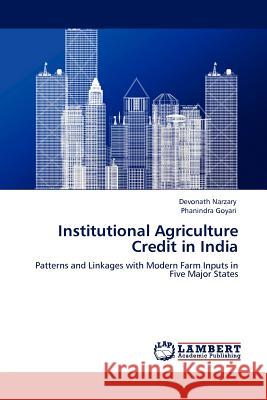Institutional Agriculture Credit in India » książka
Institutional Agriculture Credit in India
ISBN-13: 9783844386615 / Angielski / Miękka / 2011 / 100 str.
Credit is one of the important inputs in agricultural production. As an input, credit can influence the level of use of other inputs in crop cultivation. With the adoption of improved farming technologies, the need of regular and sufficient credit has now become more important than earlier days in many agriculturally dominant countries. Improved cultivation techniques demand higher dependence on the purchased inputs such as chemical fertilizers, pesticides, high yielding varieties of seeds etc. Accordingly, a state or region with higher intensity of credit disbursement is likely to have higher level of adoption of improved farm inputs. This book examines the patterns of institutional credit flow to agriculture in five major states of India, viz., Andhra Pradesh, Haryana, Maharastra, Punjab and Uttar Pradesh. Linkages between the agriculture credit disbursement and the use of modern farm inputs has also been examined for each study state. This book will be useful to professionals of corporate sector, policy makers, NGOs and also for the teachers, researchers and students of agricultural economics, banking, management and other social sciences.
Credit is one of the important inputs in agricultural production. As an input, credit can influence the level of use of other inputs in crop cultivation. With the adoption of improved farming technologies, the need of regular and sufficient credit has now become more important than earlier days in many agriculturally dominant countries. Improved cultivation techniques demand higher dependence on the purchased inputs such as chemical fertilizers, pesticides, high yielding varieties of seeds etc. Accordingly, a state or region with higher intensity of credit disbursement is likely to have higher level of adoption of improved farm inputs. This book examines the patterns of institutional credit flow to agriculture in five major states of India, viz., Andhra Pradesh, Haryana, Maharastra, Punjab and Uttar Pradesh. Linkages between the agriculture credit disbursement and the use of modern farm inputs has also been examined for each study state. This book will be useful to professionals of corporate sector, policy makers, NGOs and also for the teachers, researchers and students of agricultural economics, banking, management and other social sciences.











